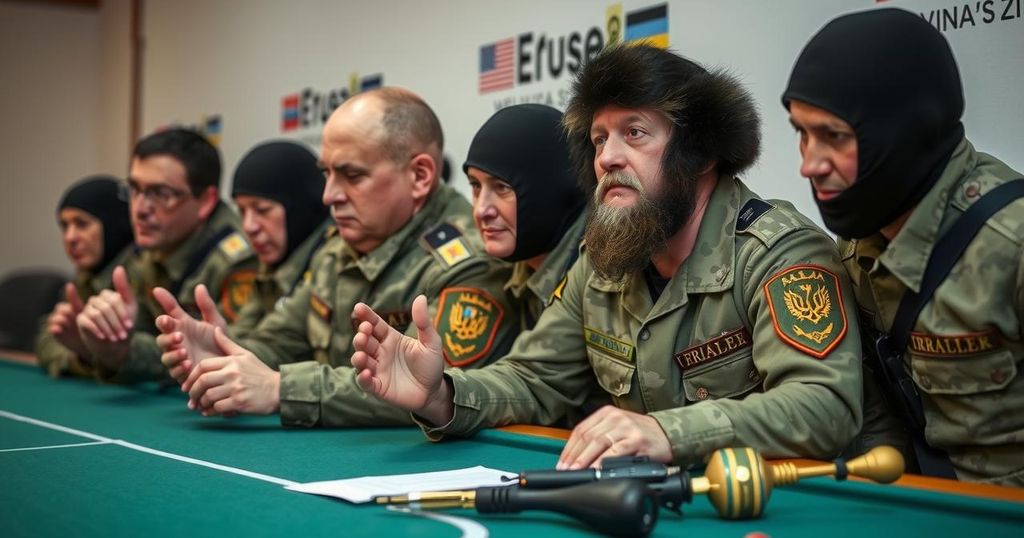Russia and Ukraine Exchange 300 POWs in UAE-Brokered Agreement

On December 30, 2024, Russia and Ukraine exchanged 300 POWs in a UAE-brokered deal. Russia also expressed opposition to foreign peacekeeping troops in Ukraine and addressed concerns regarding NATO membership for Ukraine. Direct talks between the two nations remain unlikely, with significant disagreements on peace terms.
On December 30, 2024, Russia announced the successful exchange of 300 prisoners of war (POWs) with Ukraine in a deal facilitated by the United Arab Emirates. The Russian Defence Ministry reported that 150 Ukrainian soldiers were returned in return for an equal number of Russian troops. This development occurs amidst ongoing discussions regarding the deployment of Western peacekeeping forces to Ukraine, an idea that Russia firmly opposes. Foreign Minister Sergei Lavrov expressed dissatisfaction with proposals from the United States concerning NATO membership for Ukraine and potential European troop deployments in the region. Both Russian President Vladimir Putin and Ukrainian President Volodymyr Zelensky have ruled out direct negotiations, with significant disparities remaining in their respective positions regarding territorial claims and conditions for peace settlements.
The ongoing conflict between Russia and Ukraine, which escalated significantly in 2022, has led to extensive military engagements and significant international focus on potential resolutions. The exchange of POWs is a common occurrence in armed conflicts and reflects efforts to find common ground in an otherwise volatile situation. The role of international mediators, particularly from Gulf states such as the UAE, emphasizes the global dimension of this conflict and the search for diplomatic solutions. The prospects for peace remain complicated by both nations’ steadfast stances on territorial integrity and military alliances.
In summary, the November 2024 POW exchange between Russia and Ukraine signifies a moment of negotiation amid a protracted conflict. While attempts to establish peace are underway, including discussions about foreign peacekeeping forces, the core issues remain unresolved. Both nations continue to reject direct dialogue and uphold opposing views on territorial claims. This situation presents ongoing challenges for international diplomacy and highlights the complexities of achieving a sustainable resolution.
Original Source: jordantimes.com








